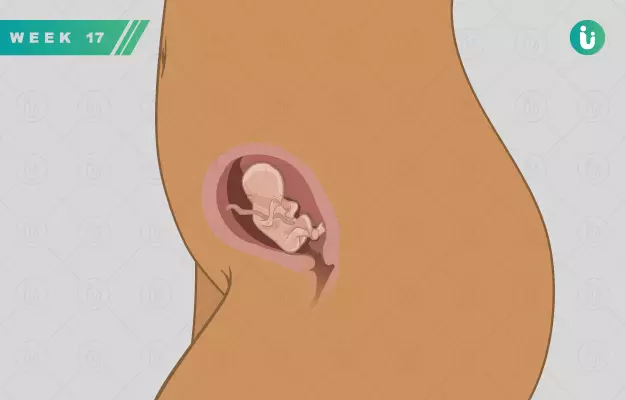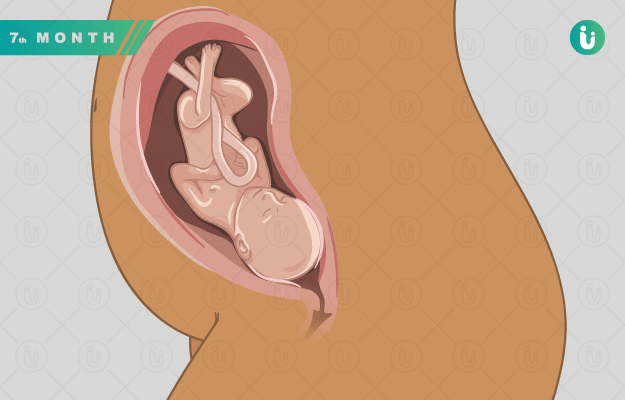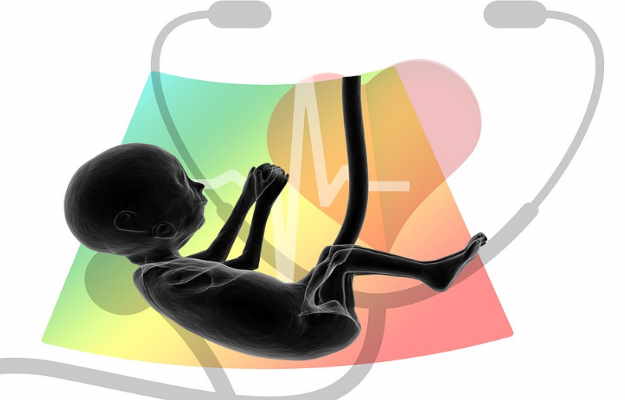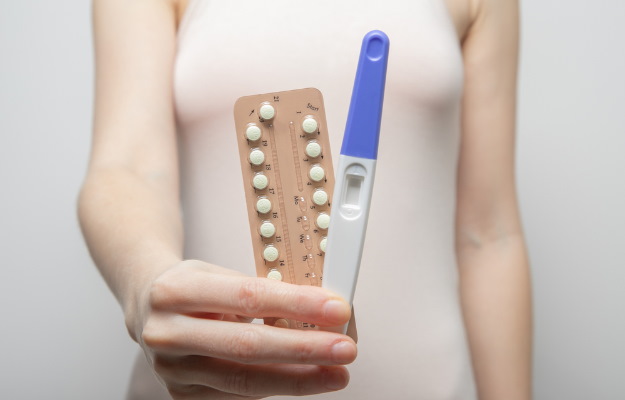Is it gas, a bit of pain or is that really your baby moving? Welcome to the 17th week of pregnancy, the time when most pregnant women start to miss their well-defined waist but love the fact that they can finally feel their baby moving.
Feeling your baby move for the first time isn’t the only major change you’re likely to notice this week, though. You’re likely to have a belly bump that’s gradually protruding more and more, which means getting stretch marks and feeling that round ligament pain more than ever in your waist. Your breasts are also likely to feel fuller and tender, and you may experience pain and observe stretch marks around there as well. (Read more: Natural ways to remove stretch marks)
Getting used to these major as well as minor changes can take a toll on some pregnant women, and you have to be aware of and take precautions against issues like infections and depression during pregnancy. And this is in addition to following your regular pregnancy diet and daily exercises during pregnancy. If you feel more exhausted after exercising, you should consult your doctor and think about doing lighter exercises.
You might not need to go in for any checkup during pregnancy this week, or get a fetal ultrasound done unless you’re at risk of any complications of pregnancy, so this week might be a good time to relax. Focus on getting used to your second trimester and plan the rest of your pregnancy if possible. Pamper yourself a little and keep stress at bay by meditating, going for a walk or by practising yoga. Here’s everything you need to know about the 17th week of pregnancy.
Read more: What pregnant women need to know about COVID-19: the new coronavirus infection
- Baby size and features at 17 weeks of pregnancy
- Changes in your body by the 17th week of pregnancy
- 17th week of pregnancy symptoms
- Complications in the 17th week of pregnancy
- Things you should do in the 17th week of pregnancy
- Takeaways for the 17th week of pregnancy
Baby size and features at 17 weeks of pregnancy
With a head to bottom length of about 12 cm and weighing about 150 grams, your baby is now approximately the size of a pomegranate. Doesn’t seem that big? Well, it is. And you’re likely to start feeling the weight of your baby right about now. Your baby’s skin is likely to be very wrinkled at this stage. But don't worry, as he or she is also starting to grow adipose or fat tissues now.
By the time of the delivery, these tissues will develop along with all the necessary muscles and the wrinkles will go away - mostly. But still, your baby will be a little wrinkled for the first month after birth and will completely grow into his or her skin only by the second month after birth.
Your baby’s ears, eyes, nails and limbs are all developing this week. The placenta is growing to carry adequate oxygen and nutrition from you to your baby. You might start to feel your baby move during this week, and will soon realise that the baby is able to respond to sounds by moving about in your womb. This is definitely one of the most amazing and reassuring developments a mother-to-be experiences during pregnancy.
Changes in your body by the 17th week of pregnancy
As your baby is changing inside your body, your body is also adapting to his or her growth and developments. As your baby grows, so will your abdomen, placenta and the uterus. Your abdomen will become more round and protrude more as your pregnancy progresses.
Your breasts will also grow and increase at least one or two cup sizes during pregnancy as they prepare for lactation. With your waist growing to make space for your baby, and your breasts getting bigger, you are likely to feel a little out of balance physically - and emotionally, too. It’s natural to feel happy, contented and amazing as your pregnancy progresses, your skin glows and you start to bloom.
It’s also natural to feel overwhelmed and depressed, but if you do see these symptoms lasting for long periods of time, you should talk to your spouse or a doctor about depression during pregnancy. The most important thing to remember is that every pregnancy is different and you should assess your own symptoms and feelings instead of going only by what experienced pregnant women in your family or friend circle recommend.
Read more: After delivery care for the mother
17th week of pregnancy symptoms
Having dealt with symptoms like morning sickness, bloating and many others during the first trimester, you might be better placed to manage the symptoms of the second trimester. And as this is your fifth week in the second trimester, you might already be familiar with some of the symptoms of the second trimester, too, by now! That said, the following are some symptoms that you might have to get used to during the 17th week of pregnancy:
- Sciatic nerve pain: This periodic type of pain might be occurring in your legs. The sciatic nerve is the longest spinal nerve in the body: it runs under the uterus and all the way down your legs. Given the added weight and pressure of the womb on this nerve, sciatic nerve pain is quite normal during pregnancy, especially during the second and third trimesters. The best thing to do about it is to rest as much as possible.
- Round ligament pain: One of the most common complaints of the second trimester, this type of pain occurs in the lower belly. Round ligament pain is either located on one side or can be experienced all across the belly. However, if you cannot bear the pain or it appears to be too much, do consult the doctor immediately.
- Swollen and bleeding gums: Hormonal changes during pregnancy can make your teeth and gums more vulnerable to plaque formation, which in turn can cause inflammation, bleeding gums and swollen gums. You should consult your obstetrician or dentist about either or both of these problems, especially if they get unmanageable.
- Fatigue: Your body is pumping more blood, your weight has increased, there’s a life growing inside you and you still have to remain active and make sure your daily functions are performed. Fatigue is quite natural under these circumstances, so don’t beat yourself up about it. Instead, make sure you get enough rest, get undisturbed sleep and eat well.
- Melasma: Melasma, also known as chloasma or the mask of pregnancy, basically refers to the dark patches of skin that might appear on your forehead, cheeks, and other parts of the face during pregnancy. This usually occurs due to hormonal changes during pregnancy, and these dark and symmetrical patches are likely to disappear a month or two after delivery as your hormone levels go back to normal.
- Other symptoms: While the above are some symptoms that might show up in the second trimester, some symptoms from the first trimester are likely to persist and even get worse. This includes heartburn, indigestion, bloating, constipation, sore breasts as your body prepares for breastfeeding, headaches, nosebleed and mood swings.
Complications in the 17th week of pregnancy
Taking ample care during your pregnancy is the best way to minimise the risk of complications. The unfortunate thing is, while you can reduce the risk of most complications, some might still occur, especially if you have a history or genetic predisposition for it. If they do, you should seek help immediately, since early detection can help save lives. The following are some complications that might show up in the second trimester.
- Infections: Vaginal infections and urinary tract infections are quite likely to happen during the second and third trimesters of pregnancy because your immunity is compromised and you are therefore more susceptible to infectious diseases. You should contact a doctor if you see any symptoms of any infections at all, and you should especially take precautions against bacterial infections, fungal infections and also viral infections like COVID-19.
- Obstetric cholestasis: This condition affects the liver and is very rare during pregnancy. But since Indian and Asian women are more at risk of obstetric cholestasis than Caucasian women, it’s important that you take note of any symptoms showing up during this week - especially if the skin on your hands and feet is itchy, particularly during the night. If you see any symptom of this condition, contact your doctor immediately.
- Hypertensive diseases: High blood pressure is never a good thing to have, but it can pose quite a number of difficulties during pregnancy. The list of hypertensive diseases which might plague you includes preeclampsia, eclampsia, gestational hypertension and chronic hypertension. You should take any and all of these very seriously and follow the treatment protocol recommended by your doctor.
- Subchorionic haemorrhage: Since you aren’t supposed to experience any vaginal bleeding during the pregnancy, bleeding due to a subchorionic haemorrhage can be quite alarming. Depending on the size of the haemorrhage, the bleeding can be light or heavy. This type of haemorrhage can happen due to placental abruption, and you should consult your doctor immediately if any signs show up. (Read more: Bleeding during pregnancy)
- Miscarriage: Getting to the 17th week indicates that your baby is growing well and the risk of a miscarriage has reduced. Still, the chances of a miscarriage are there till the 20th week of pregnancy. A miscarriage, once started, cannot be stopped - and can be a huge trauma for women. This is the reason why psychological counselling is a must for couples who have lost a baby to miscarriage.
Things you should do in the 17th week of pregnancy
Take some time to unwind and relax this week as you’re unlikely to have any doctor’s appointments for check ups or ultrasounds. If your pregnancy has progressed so far without any hassles or complications, you should be happy and relieved. And yet, it’s important to continue with the safest of routines and practices to make sure no issues show up at all. The following are some things you should do during the 17th week of pregnancy.
- If you suspect you have an infection, depression or any symptoms of any complications, call the doctor and ask if you can come in for a check up. This is important because delaying treatment can make the symptoms of most diseases worse, and timely treatment can protect your health as well as that of your baby.
- Follow the best prenatal routine you can manage, including a good diet, a healthy (but not strenuous or exhausting) exercise schedule, sleep, rest, etc. This will ensure that you are healthy and so is your baby.
- Keep a check on your mental health and don’t brush symptoms of depression under the rug. Find ways to destress or relax through the day or week, and make sure you have people to talk to about your feelings, emotions and fears.
- Stay well away from any foods that are deemed risky during pregnancy. This includes raw fish, raw seafood and undercooked or raw eggs, as well as soft cheeses. These can increase the risks of infections like salmonella and listeriosis. (Read more: Is it safe to eat fish during pregnancy?)
- Don’t assume that continuing in the same bra or fitting clothes will do you any good during pregnancy. You’re growing and need all the support you can get. And this includes the perfect bra, maternity clothes, comfortable shoes, etc.
Read more: Is it safe to eat cheese during pregnancy?
Takeaways for the 17th week of pregnancy
The 17th week of pregnancy can prove to be a very good time, especially if you’ve just started to feel your baby kick and move about in your womb.
In general, though, it’s important to remember that this is a phase of your life when you’re likely to be coping with extreme pregnancy mood swings, constantly carrying more weight around and worrying about the life growing inside you. These are quite likely to cause stress, which in turn can affect how you feel about yourself, your pregnancy and your life.
This is the reason why all pregnant women must aim to relax and yet be cautious. Taking all the precautions you need to take during pregnancy is important, whether it’s getting ample nutrition and exercise or taking note of your symptoms to ensure you’re not at risk of any infections. Your partner, family and friends can also play a role in this, so make sure that you communicate with your loved ones properly and openly.
While it’s important to plan ahead - especially since you might be excited about welcoming your baby into your family in about 23 weeks - it’s also important to avoid renovations at home or paint the baby’s room right now. This is because paint fumes can be toxic, and any exposure to them during pregnancy can harm your baby. It’s also very important to stick to your doctor’s instructions about precautions, medications, what posture to sleep in, etc.
Find Obstetrician and Gynaecologist in cities
- Obstetrician and Gynaecologist in Bangalore
- Obstetrician and Gynaecologist in Mumbai
- Obstetrician and Gynaecologist in Ghaziabad
- Obstetrician and Gynaecologist in Chennai
- Obstetrician and Gynaecologist in Pune
- Obstetrician and Gynaecologist in Delhi
- Obstetrician and Gynaecologist in Hyderabad
- Obstetrician and Gynaecologist in New Delhi
- Obstetrician and Gynaecologist in Gwalior
- Obstetrician and Gynaecologist in Gurgaon
References
- Start4Life. National Health Service [Internet]. Hertfordshire. UK; Week 17 – your second trimester
- American Pregnancy Association [Internet]. Irving, Texas, USA; Pregnancy Week 17
- Nemours Children’s Health System [Internet]. Jacksonville (FL): The Nemours Foundation; c2017. Week 17
- American College of Obstetricians and Gynecologists. [internet], Bethesda (MD), USA; How Your Fetus Grows During Pregnancy
- National Health Service [Internet]. UK; You and your baby at 17 weeks pregnant
- Brahe, A and Hogdall, C. Fetal Hydronefrosis Diagnosed in the 17th Week of Pregnancy. Ugeskr Laeger . 1984 Mar 5;146(10):732-3. PMID: 6710625
- Owe, Katherine Marie. et al. Exercise During Pregnancy and the Gestational Age Distribution: A Cohort Study. Med Sci Sports Exerc . 2012 Jun;44(6):1067-74. PMID: 22143108
- Bremme, K. et al. Outcome of Pregnancy in Relation to Maternal Serum Alpha-Fetoprotein Levels in the Second Trimester. An Evaluation of a Screening Program and a Longitudinal Follow-Up. Gynecol Obstet Invest . 1988;26(3):191-205. PMID: 2467849
- Goffinet, F. Ovarian Cysts and Pregnancy. J Gynecol Obstet Biol Reprod (Paris) . 2001 Nov;30(1 Suppl):S100-8. PMID: 11917371









































